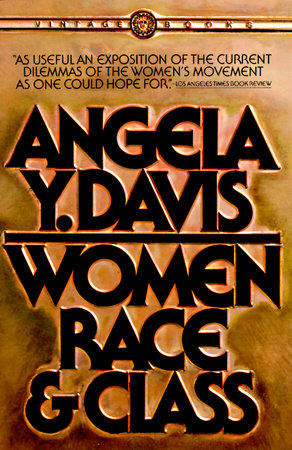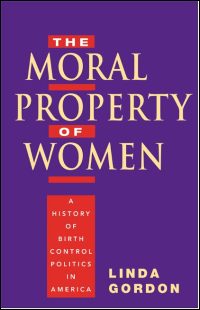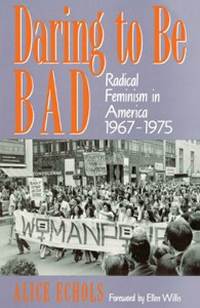 Newcomers to political resistance movements may be surprised that women of all walks of life now are taking the lead, but American sisters (not just cisters) have a long history of battling brilliantly for their rights – one we’d be remiss in ignoring now. Many of the most powerful emergent voices in the resistance are female, from former Attorney General Sally Yates, Massachusetts senator Elizabeth Warren, Beyoncé to the attorneys offering their services to immigrants and refugees in the wake of the new executive policies. (A 70-30 female-male ration has been estimated among these legal defenders.) For Women’s History month, I’ve put together a list of some key primers in the U.S. women’s rights movements, warts and all.
Newcomers to political resistance movements may be surprised that women of all walks of life now are taking the lead, but American sisters (not just cisters) have a long history of battling brilliantly for their rights – one we’d be remiss in ignoring now. Many of the most powerful emergent voices in the resistance are female, from former Attorney General Sally Yates, Massachusetts senator Elizabeth Warren, Beyoncé to the attorneys offering their services to immigrants and refugees in the wake of the new executive policies. (A 70-30 female-male ration has been estimated among these legal defenders.) For Women’s History month, I’ve put together a list of some key primers in the U.S. women’s rights movements, warts and all.
Seneca Falls and the Origins of the Women’s Rights Movement–Sally McMillen
Covering women’s activism from 1840-1890, this meticulously researched volume centers on the many movements launching from the 1848 convention in Seneca Falls, New York, which galvanized the American battle for equal gender rights. With scholarly detail and accessible prose, McMillen centers on activists Elizabeth Cady Stanton, Lucretia Mott, Susan B. Anthony, and Lucy Stone, and their battle for women’s legal rights, including the right to vote and hold property. To her credit, McMillen doesn’t shrink from these movements’ blind spots around race, class, sexuality, and religion – issues that still haunt feminist actions today. (Those much-touted pink hats, for example, alienated some attendees for reasons ranging from trans-exclusion to accusations of “inappropriateness.”) This is an outstanding map of how far we’ve come and of far we still have to go.
The Moral Property of Women–Linda Gordon
Reproductive rights have always been key to the women’s movement, and this book offers a 200-year perspective on the fight for birth control, legal abortions, and decent women’s healthcare. Topics include dangerous nineteenth-century home abortions, birth control activist Margaret Sanger, the early days of Planned Parenthood, Roe v. Wade, and the “abortion drug” RU-486. Gordon excels at laying out ethical dilemmas and mise-en-scène, so this covers everything from the 1870s “voluntary motherhood” movement to moral reformers, socialists, and sex radicals. One huge takeaway from this book: Progress is far less linear than is commonly accepted.
Gordon excels at laying out ethical dilemmas and mise-en-scène, so this covers everything from the 1870s “voluntary motherhood” movement to moral reformers, socialists, and sex radicals. One huge takeaway from this book: Progress is far less linear than is commonly accepted.
The Good Girls Revolt–Lynn Povich
When Lynn Povich first began working at Newsweek in the 1960s, she and other women were only allowed to be secretaries, fact-checkers, and researchers; only men served as writers and reporters. This is her firsthand account of how she and her female colleagues sued their bosses and eventually won, setting a legal precedent that benefits American women today. I love this book not only for its testament to the power of female solidarity, but for its acknowledgment of what still remains unfair in the workplace. (Equal pay is, as ever, an elusive goal and hostile work environments are far too common.)
Women, Race, & Class-Angela Y. Davis
Of all the speakers at the D.C. branch of the women’s march, Angela Davis was a true stand-out: “We recognize that we are collective agents of history and that history cannot be deleted like web pages,” she declared. She should know. A radical activist and author associated with the battle for prisoners’ rights and the Black Panther movement, she is one of the most golden mothers of modern activism. In this book, she lays out in her signature straight talk the way that feminist movements have been hampered by the racial and economic biases of its leaders from abolitionist days to the present. Read it and self-correct. (And watch her speech.)
Daring to Be Bad-Alice Echols
Along the same lines, Alice Echols’s examination of powerful second-wave feminism meticulously breaks downs its origins in larger leftist movements. Highlighting key leaders and the internal divisions based on sexuality, race, and the debate about whether capitalism or men were the bigger enemy (hey, it was the 1960s), this book is especially important for any women  accused of being too “out there” today. All these players were unapologetic bad-asses.
accused of being too “out there” today. All these players were unapologetic bad-asses.
Feminism Is for Everybody–bell hooks
Long revered for her clear and compassionate brand of social change, hooks here breaks down how the feminist movement today continues to be vital and, at its best, profoundly inclusive. Addressing such issues as violence, racism, economic injustice, reproductive rights and workplace inequities, she suggests – nay, demands – that women’s movements double as safe havens from all oppressive aspects of contemporary culture. “A genuine feminist politic brings us from lovelessness to love,” she writes. “There is no love without justice.”
This was originally published on Signature.
